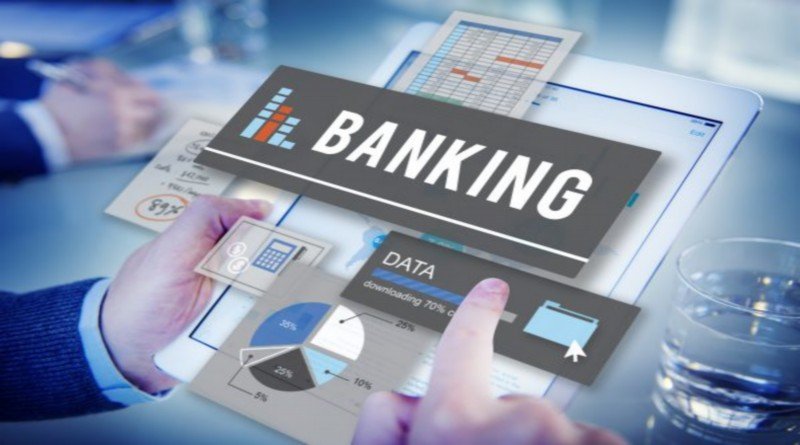In the mid-90s, Bill Gates said that ‘saving money is vital, banks are not.’ This estimation has developed among the populace in the course of the most recent decade, with popular sentiment betraying banks after the budgetary emergency of 2008 and innovation opening up a scope of new alternatives for monetary administration. This has empowered new businesses to enter the area at a remarkable rate, causing an abnormal state of disturbance.
Apple, Stripe, and Square are only a couple of the organizations altering how we pay for things, while advanced monetary standards and distributed loan specialists are opening up new subsidizing roads for new companies and SMEs. In a current Price water house Coopers review of more than 1,300 monetary industry administrators, 88% said they dreaded their business was in danger to independent budgetary innovation organizations in territories, for example, installments, cash exchanges, and individual back, and 51% said they trust they could lose as much as 40% of their income to independent FinTech firms.
In any case, regardless of this change, banks are still here, and they are as yet the stone monuments that they were twenty years back. With a specific end goal to remain important, they have endeavored to bridle the advanced insurgency and totally reconsidered their part and the client encounter, frequently working nearby FinTech new companies to do as such.
One of the fundamental favorable circumstances that customary banks have is the immense measure of money related information they hold about their a huge number of clients. They additionally have the structure and funding to abuse it. Talking at the current Google Cloud Next gathering, Darryl West, Group Chief Information Officer at HSBC, clarified that, ‘Aside from our $2.4 trillion dollars of advantages on our monetary record, we have at the center of the organization an enormous resource in [the frame of] our information. What’s more, what’s been going on over the most recent three years is a monstrous development in the span of our information resources.
Our clients are receiving computerized channels all the more forcefully and we’re gathering more information about how our clients associate with us. As a bank, we have to work with accomplices to empower us to comprehend what’s going on and attract out bits of knowledge arrange for us to maintain a superior business and make some astonishing client encounters.’
The potential for information examination is being acknowledged over the money related segment. As indicated by the most recent Worldwide Semiannual Big Data and Analytics Spending Guide from IDC, overall incomes for huge information and business investigation (BDA) will go up from $130.1 billion out of 2016 to more than $203 billion out of 2020. Also, it is managing an account that it is driving the charge, with IDC assessing that the business spent nearly $17 billion on huge information and business investigation arrangements in 2016.
The applications for information and investigation in saving money are interminable. They can utilize information for more prominent personalization, empowering them to offer items and administrations custom fitted to singular purchasers progressively. For instance, when you buy an abroad flight or an auto, the bank sends special offers of protection to cover these items. Later on, such applications could be extended considerably further. One way this could happen is whether you are getting a vast bill, the bank could send an instant message as you make them offer a credit to take care of the expense. A calculation would then ascertain what loan cost would be most fitting in light of your notable getting examples and its perspective of you as a credit hazard, before wiring the installment crosswise over immediately.
Information will likewise imply that banks would more be able to precisely check the danger of offering an advance to a client. Prescient investigation models like the FICO scoring framework can examine shoppers’ record as a consumer, advance or credit applications, and other information to evaluate whether the purchaser will make their installments on time later on. They can likewise consolidate organized client input with online networking remarks and other unstructured information to make a far reaching client profile, hence restricting presentation to hazard around delinquencies.
A standout amongst the most vital ways banks will have the capacity to utilize their information later on is to prepare machine learning calculations that can computerize a considerable lot of their procedures. counterfeit consciousness (AI) arrangements that can possibly change how banks manage administrative consistence issues. As per Rahul Singh, leader of monetary administrations at IT administrations supplier HCL Technologies, ‘We are as of now encountering use-instances of AI and progress investigation in the counter tax evasion work where innovation can cut false positives down, permitting centered ways to deal with hazard discovery and shirking.’ A 2015 report from McKinsey and Company uncovered that twelve European banks have officially moved from customary measurable examination displaying to machine learning, with numerous refering to expanded new item offers of 10% and beat and capital consumption around 20% therefore.
Read about:- THE FINTECH ENTREPRENEUR’S NEED FOR SPEED












